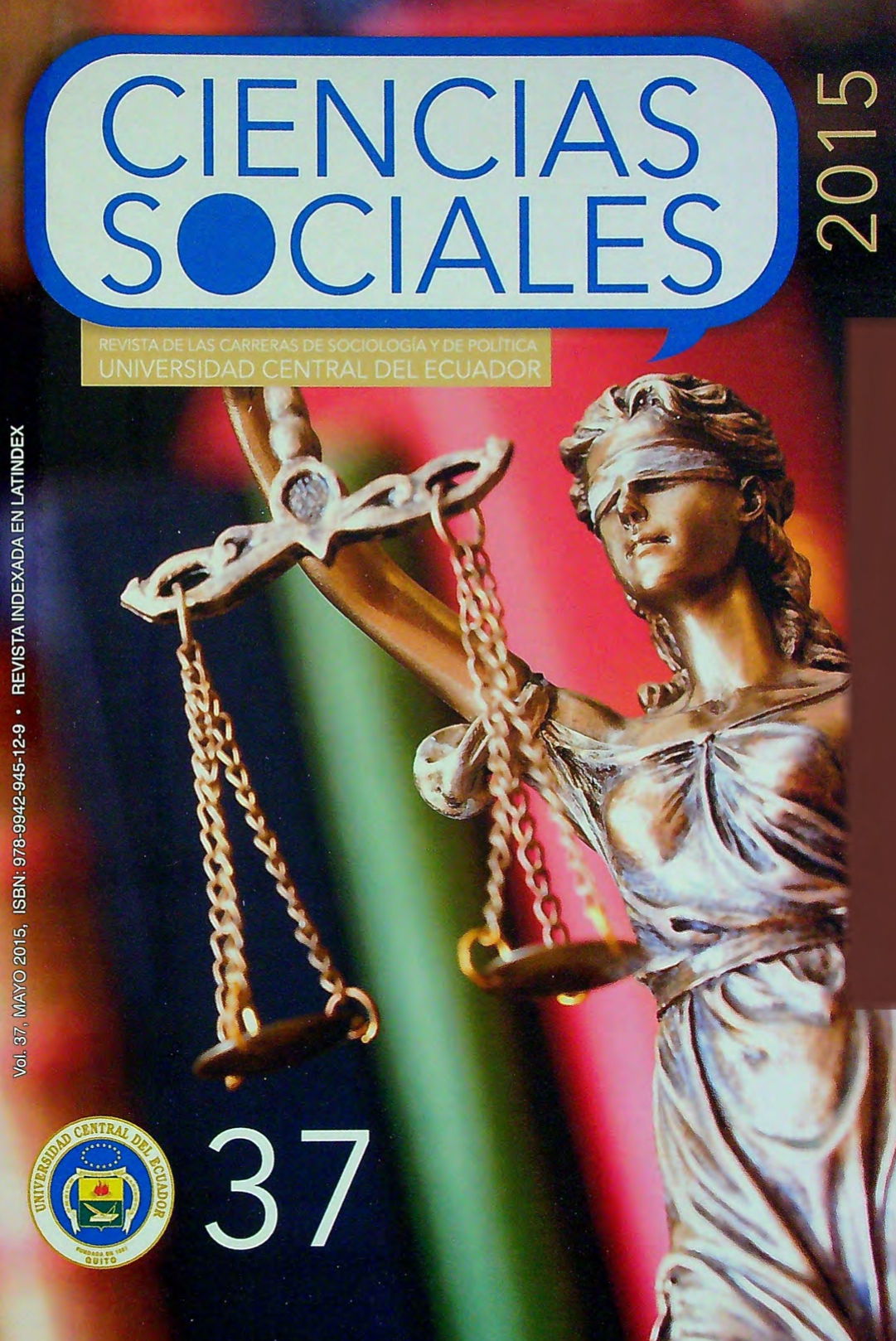El Estado Neoconstitucional, la culpabilidad penal y los Wuaoranis:
La motivación penal desde lo constitucional
Keywords:
Neoconstitutional State, criminal culpability, Waoranis, the criminal motivation, legal pluralism, indigenous communities, criminal law, uncontacted peoples, ethnocide, genocide, sociocultural conditionsAbstract
Legal pluralism as a characteristic institution of state constitutional rights neo implementad in Ecuador following the promulgatlon of the Constitution of the Republic in 2008 has remained strong and powerful support from the political discourse but not from the law. lndeed, this constitutional principie needs a regulatory development that should cover mainly in the criminal field, the legal stage of the criminal juslice system, particularly fixed in the framework of criminal responsibility. The theory of crime when studying the category of substance Guilt is a job for the state to molivate people from the field of the development of elhical consciousness legal compllance to legal regulations. A well concientizada population by the Slate on the scope and consequences of !he criminal law implies a two-way relationship with the populalion that constitutes. An unmotivated or, even worse, oblivious to society and back lo state conglomerate is a segment who respect the motivation of the criminal law has never gonna get. But even when they have been they who lhey have given up part of the social contract as the basis of peaceful coexistence, as ín !he case of Amazonian indigenous Taraomenane and part of the Huaorani.
Downloads
References
Avila, R. (2013). LA (IN)JUSTICIA PENAL EN LA DEMOCRACIA CONSTITUCIONAL DE DERECHOS. Una mirada desde el garantismo penal. Quito: Ediciones Legakles EDLE S.A.
Ayala Mora, E. (2002). ECUADOR: PARTIA DE TODOS, la nación ecuatoriana, unidad en la diversidad. Quito: UASB.
Ayala Mora, E. (2011). La interculturalidad, camino para el Ecuador. Quito: UASB-E/FENOCIN.
Duque, A. (20 de Noviembre de 2008). Desde Abajo. Obtenido de http://www.desdeabajo.info/edicioneslitemf.3359-tagaeris-y- taromenanes-pueblos-ind%C3%ADgenas-en-resistencia.html?tmpl=component&print=1
Durkheim, E. (1912). Formas elementales de la vida religiosa. París.
Función Ejecutiva. (12 de junio del 2009). Decreto Ejecutivo 1780. Quito: Registro Oficial.
Francia, S. L. 12007). Sistema penal y pluralismo jurídico:llneamientos para nterpretar la legislación peruana. Lima: CEAS.
Huaoranís. (s.f.). Obtenido de juancara-huaoranisblogspotcom.blogspot.com
Mir Puig, S. (1996). Derecho Penal. Parte General . . Barcelona: Ed. Promociones y Publicaciones Universitarias.
Muñoz Conde, F. (2007). Derecho Penal. Parte General. Valencia: Tiran! lo blanch libros.
Revista Vistazo. (s.f.). Obtenido de http://www.vistazo.com/impresa/pais/?id=6388.
Stavenhagen, R. (2006). Los derechos de los pueblos indígenas: esperanzas, logros y reclamos, en Pueblos indigenas y derechos humanos .. Lima: Oeusto Ediciones.
Viajandox. (s.f.). Obtenido de http://www.viajandox.com/orellana/lagaerl-etnia-comunidad-orellana.htm
Downloads
Published
How to Cite
Issue
Section
License

This work is licensed under a Creative Commons Attribution-NonCommercial 4.0 International License.
Política de acceso abierto
La revista Ciencias Sociales adhiere al modelo Acceso Abierto en el que los contenidos de las publicaciones científicas se encuentran disponibles a texto completo libre y gratuito en Internet, sin embargos temporales, y cuyos costos de producción editorial no son transferidos a los/las autores/as.
En ese sentido, no existe costo alguno para los/as autores/as en el envío o durante el proceso editorial, defendiendo el derecho a la información con equidad e iguales oportunidades de acceso.
Licencia y derechos de autor/a
Los autores conservan todos los derechos de publicación del artículo y conceden a la Revista Ciencias Sociales una licencia no exclusiva, intrasferible y sin regalías por duración ilimitada para su reproducción, distribución y comunicación pública a nivel mundial bajo una Licencia Creative Commons Atribución 4.0 Internacional (CC BY NC 4.0)


